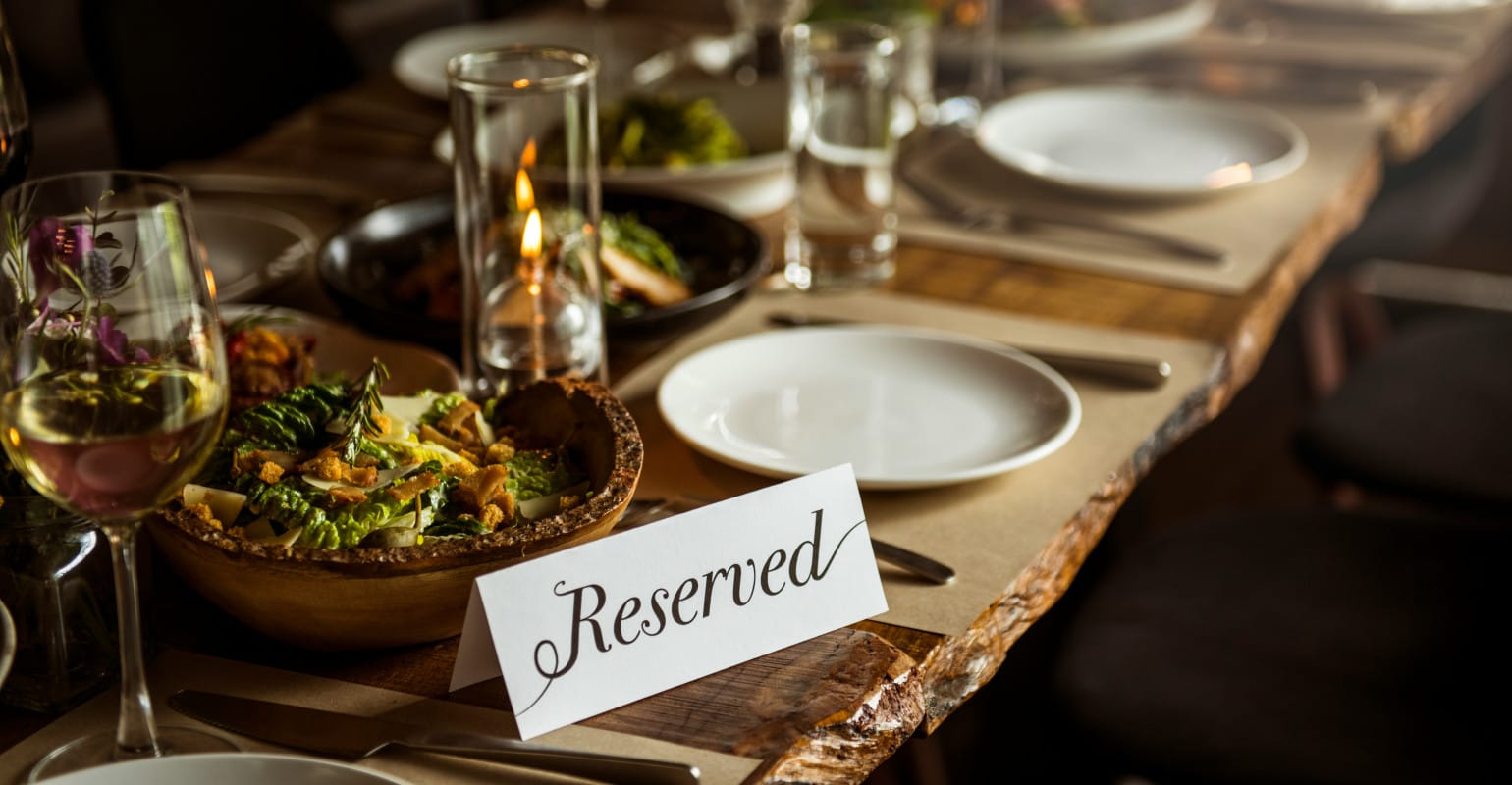You know what they say—knowing your guest is just as important as knowing your menu.
It’s not just about remembering names anymore. Today’s guests expect a personalised experience, from their favourite table to how they like their steak cooked.
Traditionally, those personal touches relied on memory, handwritten notes, or a tight-knit team. But as guest expectations grow and teams get busier, it’s harder to keep up without the right tools in place.
That’s where a customer relationship management system (CRM) comes in. In plain terms, it’s your digital memory bank. It helps you track guest preferences, feedback, visit history, and loyalty activity—then puts that data to work, so you can create consistent, personalised service across every touchpoint.
Whether you’re running a neighbourhood cafe in Melbourne, a busy bar in Toronto, or a multi-site group in London, a CRM can help you:
- Deliver more personal service at scale
- Improve marketing and retention without the guesswork
- Make smarter decisions using real guest data
In this article, we’ll break down what a restaurant CRM really is (and what it’s not), why it’s becoming essential for modern hospitality businesses, and how to choose the right one for your venue, your team, and your goals.
What is a restaurant CRM (and why it’s not just “another system”)
A restaurant CRM (Customer Relationship Management tool) is your digital guest book. It stores everything you need to know about your guests—who they are, how often they visit, what they love, and how they interact with your venue.
Think of it as a system that helps your team remember the little details that make great hospitality feel personal, without relying on sticky notes, spreadsheets, or memory alone.
For example:
- Knows that Sarah always books on Fridays and loves the corner booth
- Sends James a birthday treat featuring his favourite dessert automatically

And here’s why that matters: a strong customer retention rate in hospitality typically sits between 60%-70%. That means more than half of your guests are likely to return, if you give them a reason to.
It’s not just about data. It’s about using that data to deliver better service, drive repeat visits, and build long-term loyalty that feels genuine.
Let's be clear about what a CRM is not:
- It’s not just a marketing tool—it’s built to support service, operations, and guest experience.
- It’s not just for large chains—some of our most loyal users run single-location cafes.
- It’s not another system your team will ignore—the best CRMs are intuitive, easy to train on, and feel like second nature during service.
- And it’s not about replacing human hospitality—it simply helps you deliver it more consistently.
When used well, a CRM becomes part of the team, quietly working in the background to make every guest feel like a regular.
Why every restaurant needs a CRM
We hear this a lot: “We’re only a small venue, do we really need a CRM?” And the answer we’ve learned over time is a confident yes.
The size of your restaurant doesn’t matter nearly as much as the strength of your guest relationships. It’s about knowing the people who do walk through your doors, and giving them a reason to come back.
And it’s not just big businesses catching on. Nearly 84% of companies exploring CRM software have under 1,000 employees, showing that small to mid-sized venues are increasingly recognising the value of smarter, guest-focused systems.
Whether you’ve got 30 seats or three locations, a CRM helps you make every interaction count.
Delivers personalised guest experiences
One of the biggest shifts we’ve seen in hospitality is the move toward more tailored service. Guests today expect more than just good food—they want to feel remembered.
A CRM helps teams do just that by keeping track of preferences, past visits, and special notes. It’s the kind of information that used to live in a manager’s head or on a sticky note.
With a CRM, it’s accessible across shifts and teams, making it easier to deliver consistent, personalised experiences that keep guests coming back.
Smarter, data-driven marketing
Marketing hits differently when it actually feels like it was meant for you. When you can tailor a message to a guest who hasn’t visited in a while, or reward someone who always books Saturday nights, it makes a stronger impression than any generic promo ever could.
You can segment your guest list by behaviour, visit frequency, or spend, and send offers that are actually relevant.
With automated marketing and the right integrations (like the ones available through Now Book It), your campaigns can run in the background, encouraging bookings and building your customer database without adding to your to-do list.
More five-star reviews, less guesswork
Many venues use CRMs to automatically request feedback after a visit—a simple tactic that encourages reviews and catches issues early.
This kind of automation helps maintain a strong online reputation while giving teams a chance to resolve problems privately before they escalate.
Over time, this also provides a useful view into guest sentiment and areas for improvement, helping operators make more informed decisions around service, training, or menu updates.

Helps teams work smarter (not harder)
In a fast-paced environment where staff turnover and shift changes are common, consistency can suffer.
CRMs help bridge that gap by making guest information available to everyone, not just long-time team members.
From onboarding new staff to managing service across multiple locations, having one central place to store guest data means fewer handover gaps, less repetition, and smoother operations overall.
Supports loyalty that actually feels loyal
Traditional loyalty programs—like punch cards or blanket discounts—are easy to set up but don’t always reward the right behaviours.
CRMs offer a more strategic way to build loyalty by linking rewards to real guest activity. That could mean recognising your most frequent diners, tracking spend over time, or offering perks based on preferences.
When rewards feel personalised and well-earned, guests are more likely to stay loyal (and talk about it).
Turns one-time diners into lifelong regulars
With a CRM, you’re not just tracking who visits, you’re learning why they return.
Over time, patterns begin to emerge that help you understand what drives loyalty and where guests drop off.
You might notice certain dishes lead to repeat visits or that guests are more likely to return after receiving a follow-up offer. These insights allow you to refine your retention strategies, so you’re not just hoping people come back, you’re actively increasing the odds they will.
Future-proofs your business for growth
Last but not least, a CRM isn’t just a tool for today, it’s an investment in your venue’s future. As your business grows, guest data becomes even more valuable.
Whether you’re hiring new staff, launching marketing campaigns, or opening a second location, a CRM gives you the structure to scale without losing the personal touch. Instead of starting from scratch each time, you’re building on a foundation that’s already working.
Choosing the right CRM (without the headache)
We’ve worked with venues of all shapes and sizes, and if you’re reading this, there’s a good chance you’re already wondering if your current tools are cutting it.
Here’s a quick self-check we often walk operators through. If you’re nodding yes to two or more of these, it might be time to explore a better system:
- You’re still jotting down guest notes in a notebook or spreadsheet
- Your marketing feels like shouting into the void
- You can’t confidently name your top 100 guests
- Your bookings and guest feedback aren’t tied together
- You want to grow loyalty, but don’t know where to start
The good news is, you don’t need to overhaul your entire tech stack to get results. Here’s what we recommend looking for in a CRM that works for you and your team:

1. Start with your goals
Think about what you actually want to improve. Are you trying to retain more first-time guests? Build out loyalty? Automate post-visit messages? Your CRM should directly support your goals, not distract from them. If it doesn’t help your team deliver better hospitality, it’s not the right fit.
2. Must integrate with your POS and other tools
This one’s a must. Look for a CRM that fits easily into your existing tech stack, especially your POS, booking system, email platform, and loyalty tools. The goal is to reduce double-handling, not create more admin. Integration shouldn’t be a bonus—it should be built-in.
Now Book It make this easier as your go-to reservation platform by supporting a range of integrations across operations, marketing, events, and payments, helping you streamline your workflow without jumping between systems.
3. User-friendly for you and your staff
Your team should be able to pick it up quickly, even during a busy Friday night. Look for a clean interface, mobile access, and dashboards that show you the info you need without ten clicks. If it needs hours of training to use, it’s not built for hospitality.
4. Local support matters
It’s easy to overlook, but customer support can make or break your experience. Look for providers that offer support in your region, whether that’s Australia, New Zealand, the UK, the US, or Canada. Bonus points if they understand hospitality and can offer onboarding tailored to your service flow.
5. Scalable for multi-venue or group growth
You don’t want to outgrow your CRM six months from now. Choose something that scales with you, whether you’re opening a second site or expanding your marketing reach. A good CRM grows with your business, not ahead of it or behind it.
6. Price vs ROI
It’s tempting to go for the cheapest option, but focus on value over price. A well-used CRM should earn its keep, whether that’s through increased bookings, stronger loyalty, or better marketing returns. Look for clear pricing, no hidden fees, and solid support. If it’s saving your team hours or bringing guests back, it’s paying for itself.
The bottom line: it’s time to know your guests better
Hospitality has always been about the details—remembering a favourite table, a birthday, or how someone takes their coffee. A CRM just makes that kind of thoughtful service easier to scale.
But a CRM doesn’t work in isolation. It’s most powerful when it connects with the tools you already use (like your reservation system).
With seamless booking, table management, and guest data capture, Now Book It lays the groundwork for CRM success. So when you’re ready to get personal with your guests, you’re not starting from scratch.


